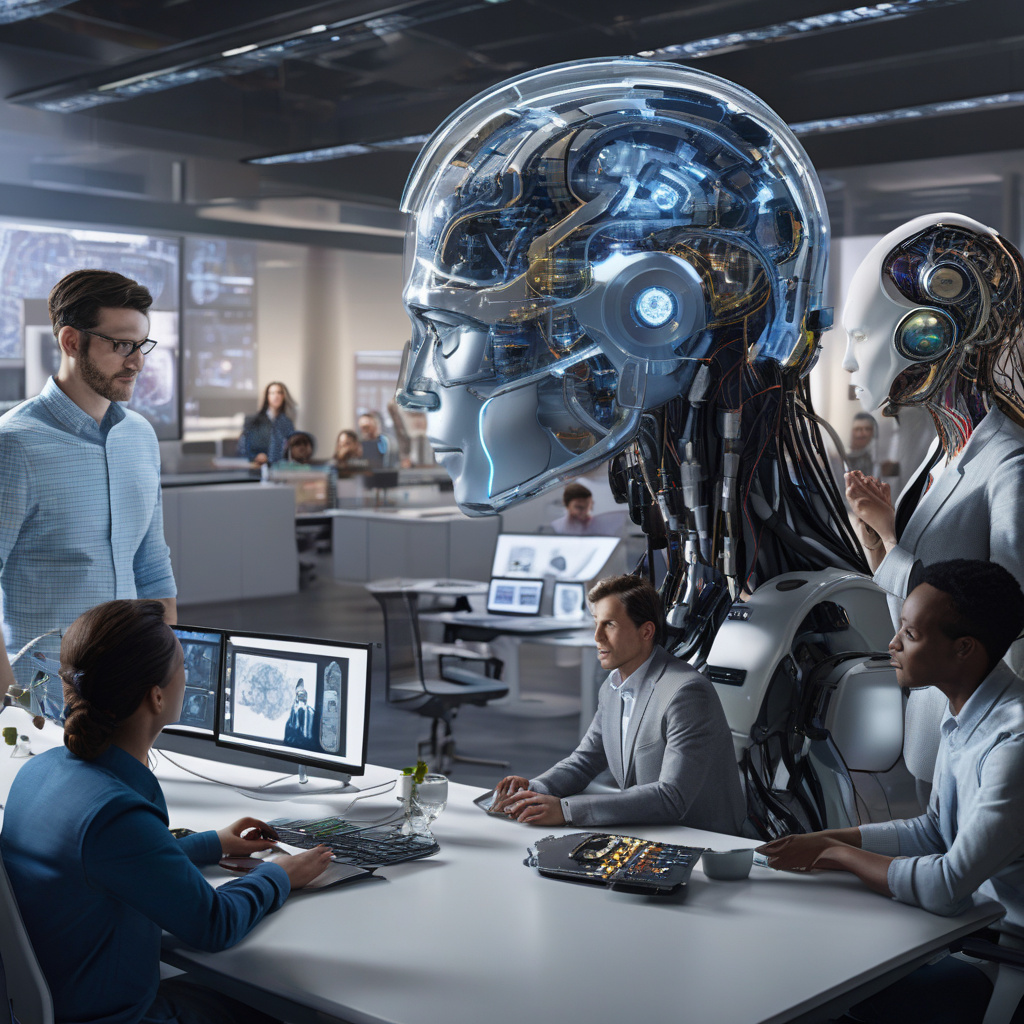The synergy between humans and artificial intelligence (AI) has sparked a new era of collaboration, paving the way for unprecedented innovation in various industries. As we stand on the cusp of a future where human-AI partnership is central to progress, the 50/50 balance between human ingenuity and AI capabilities is reshaping the landscape of technology and development.
In the realm of software development, AI algorithms can crunch massive amounts of data at speeds far surpassing human capacity, enabling rapid analysis and problem-solving. For instance, AI-powered tools like GitClear help developers gain insights into team productivity and code complexity, streamlining the development process by identifying bottlenecks and enhancing efficiency.
Moreover, AI’s proficiency in pattern recognition and predictive analytics has revolutionized cybersecurity practices. Systems like Darktrace utilize AI to detect and respond to cyber threats in real-time, augmenting human efforts in safeguarding sensitive data and networks. This collaborative approach fortifies defenses against evolving cyber risks, ensuring proactive protection in an increasingly digital world.
In the field of healthcare, the fusion of human expertise with AI algorithms has led to groundbreaking advancements. Medical imaging technologies enhanced by AI, such as those developed by Zebra Medical Vision, facilitate early detection of diseases like cancer by analyzing imaging data with unparalleled accuracy. By working alongside healthcare professionals, AI contributes to more precise diagnoses and personalized treatment plans, ultimately improving patient outcomes.
The automotive industry exemplifies the transformative power of human-AI collaboration through autonomous vehicles. Companies like Tesla harness AI for self-driving capabilities, integrating human oversight to ensure safety and regulatory compliance. This harmonious partnership between human drivers and AI systems not only enhances road safety but also propels the evolution of transportation towards a more efficient and sustainable future.
As we embrace the era of human-AI collaboration, it is crucial to recognize the ethical considerations and societal impact of this paradigm shift. Striking a balance between automation and human intervention is essential to uphold accountability, transparency, and fairness in decision-making processes guided by AI. Initiatives like the IEEE Global Initiative for Ethical Considerations in AI and Autonomous Systems play a vital role in shaping ethical frameworks that govern human-AI interactions, fostering responsible innovation and societal well-being.
In conclusion, the future of human-AI collaboration for innovation holds immense promise across diverse domains, from software development to healthcare and beyond. By harnessing the complementary strengths of human creativity and AI efficiency, we can unlock new possibilities, drive progress, and shape a future where technology serves as a catalyst for positive change. Embracing this 50/50 partnership is not just a strategic imperative but a transformative journey towards a more connected, intelligent, and inclusive world.

